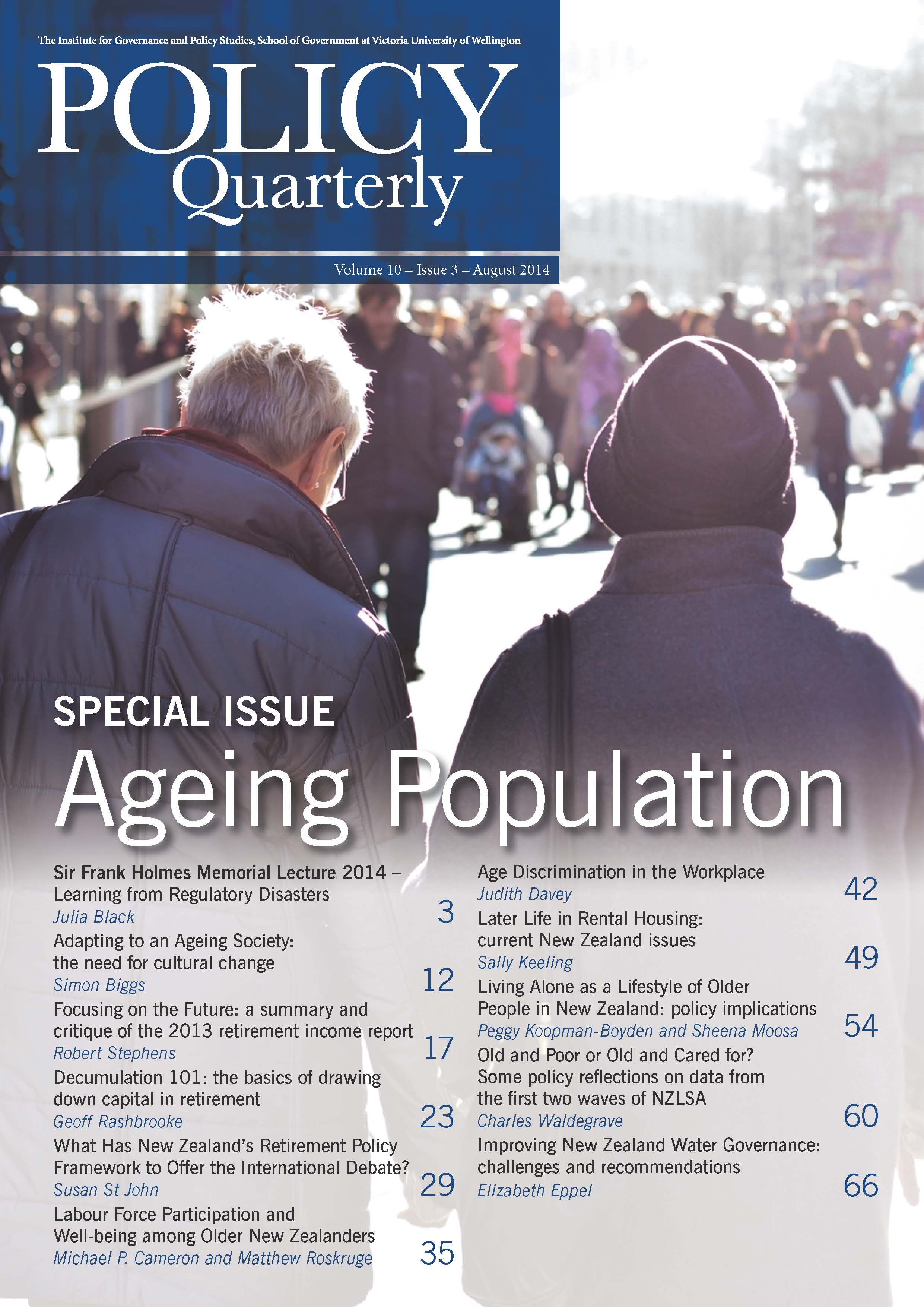Living alone as a lifestyle of older people in New Zealand: policy implications
DOI:
https://doi.org/10.26686/pq.v10i3.4499Keywords:
middleaged and older people living alone, strategies to make solo lifestyle meaningful, ‘single-person household’, social isolation, demographic trends and changes in household composition, individualism, ‘ageing in place’ policyAbstract
In many societies adults of various ages are adopting a new lifestyle of living alone which is often characterised by independence, self-sufficiency, freedom and alternative living, yet is also seen as hedonistic, selfish and individualistic. No previous societies have supported so many people living alone, for living alone may not be a desired survival goal at societal level (Roseneil, 2006). In many modern societies a significant number of middleaged and older people are living alone as a result of smaller families, relationship break-ups or the death of a spouse or partner. This article examines the development of this phenomenon, including the possibility of it becoming a more dominant lifestyle for older people, while exploring the motivations of older New Zealanders (aged 65 and over) who live alone, and the strategies they adopt to make their solo lifestyle meaningful.
Downloads
Downloads
Published
Issue
Section
License
Permission: In the interest of promoting debate and wider dissemination, the IGPS encourages use of all or part of the articles appearing in PQ, where there is no element of commercial gain. Appropriate acknowledgement of both author and source should be made in all cases. Please direct requests for permission to reprint articles from this publication to Policy-Quarterly@vuw.ac.nz.



